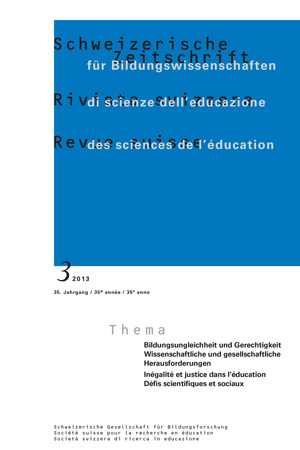The impact of primary and secondary effects of social origins on the second school transition in Switzerland: A comparison of decomposition methods and variable operationalization
DOI:
https://doi.org/10.24452/sjer.35.3.4919Keywords:
Primary and secondary effects of social origin, nonlinear decomposition, educational inequality in SwitzerlandAbstract
Although in a meritocratic society social background should not impact the chances of attaining a higher education, research suggests that in Switzerland background does play an important role. This article demonstrates that social background influences the probability of entering Gymnasium after obligatory schooling, and to what extent the impact of social background can be attributed to primary and secondary effects. Taking into account key control variables like the track children attended, pupils from the upper class have a 6 percent higher chance of attending gymnasium than those from the lower class. Primary effects account for 20% of this upper-class advantage. The article also tests estimation sensitivity to variations in variable operationalization and decomposition methods.
Downloads
Downloads
Published
Issue
Section
License
Copyright (c) 2013 Benita Combet

This work is licensed under a Creative Commons Attribution 4.0 International License.



